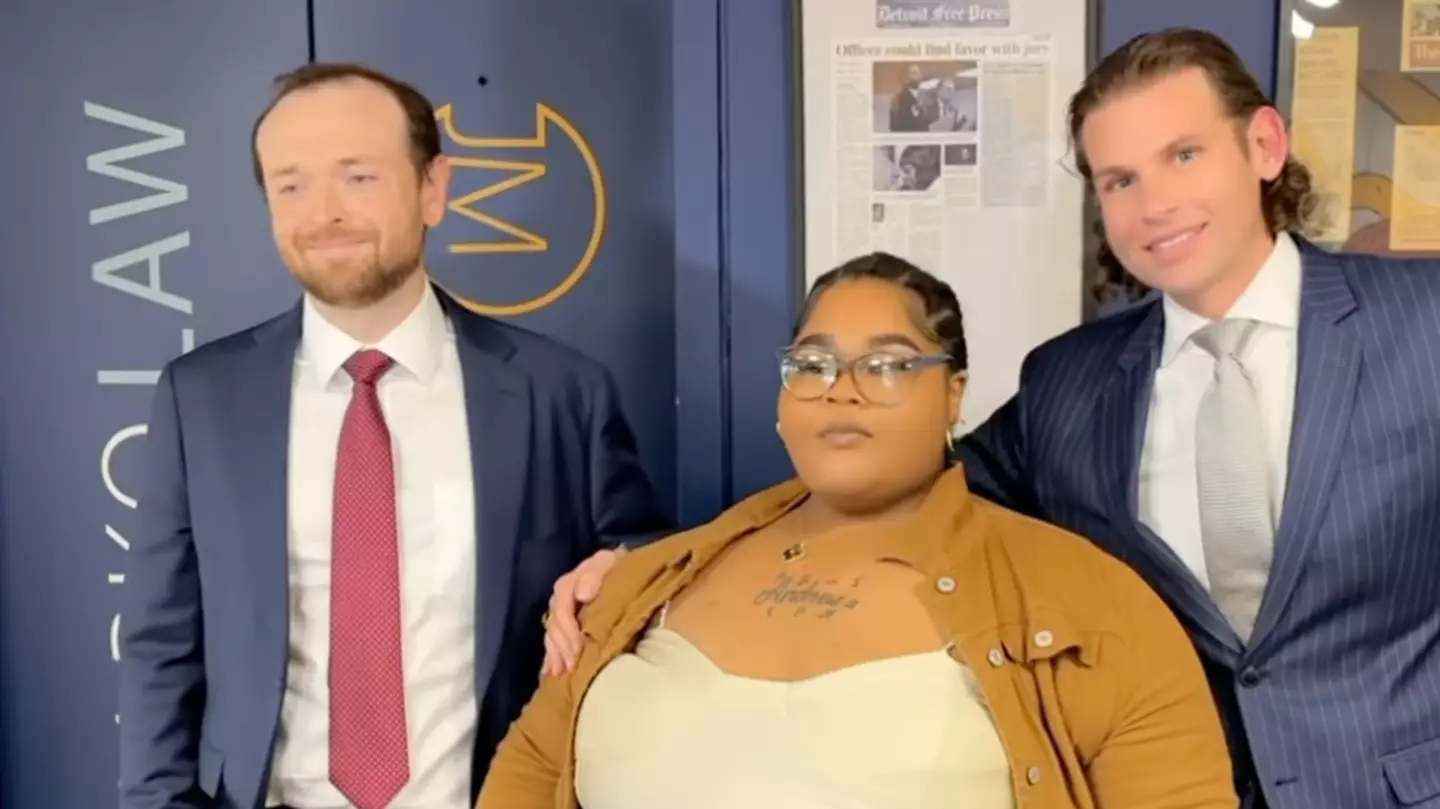A U.S. woman is suing Lyft after a driver allegedly refused her service, claiming she was “too big” to fit into his car. The incident took place in Detroit, Michigan, involving rapper Dajua Blanding, known by her stage name Dank Demoss.
Blanding shared her experience on social media, posting footage of the encounter. In the video, the driver can be heard telling the 36-year-old rapper that he does not believe she will be able to fit in the back of his Mercedes-Benz sedan.
“I have no space at all; my car is small,” the driver states in the clip. Blanding insists, “I can fit in this car.” However, the driver remains firm, replying, “No, believe me, you can’t, so… I’m sorry.”
When Blanding questions what will happen to her money, the driver explains that he will cancel the ride so she can receive a refund. She then asks if he is refusing service due to her size, to which he replies, “Yeah, you need to order a bigger car.”
In an unexpected remark, the driver also cites “very tired tires” as another reason for declining the ride. Blanding responds, “What does that have to do with your tires?”
Frustrated by the experience, she took to Instagram, tagging Lyft and writing, “@lyft what y’all got to say about this? Your driver discriminated against me.”
Following the incident, Blanding has decided to pursue legal action against Lyft. She confirmed to Fox that she has hired two attorneys and is filing a lawsuit for discrimination.
Michigan is the only state in the U.S. with a law explicitly prohibiting weight discrimination.
“I’ve been in cars smaller than that. I just want them to know that it hurt my feelings,” Blanding told the media.

Her attorney, Jonathan Marko, added, “I knew that it was illegal, and I knew that it was wrong. It would be no different than a driver pulling up and saying, ‘I don’t want Black people in my car’ or ‘I don’t want Christians in my car.’ Under the law, it’s the same.”
In response to the allegations, Lyft issued a statement to Fox 2 Detroit, asserting that the company “unequivocally condemns all forms of discrimination.”
“We believe in a community where everyone is treated with equal respect and mutual kindness. Our community guidelines and terms of service explicitly prohibit harassment or discrimination,” the company stated.

The incident involving Dajua Blanding and Lyft raises important concerns about weight discrimination and the responsibility of ride-sharing services to ensure fair treatment for all passengers. Michigan’s unique legal stance against weight discrimination highlights the significance of this case, as it could set a precedent for similar lawsuits in the future. Blanding’s decision to take legal action emphasizes the emotional and social impact of such incidents, reinforcing the need for companies like Lyft to enforce their anti-discrimination policies more effectively. The outcome of this case may influence broader discussions on inclusivity and equal treatment within the transportation industry.
Share with your friends

















